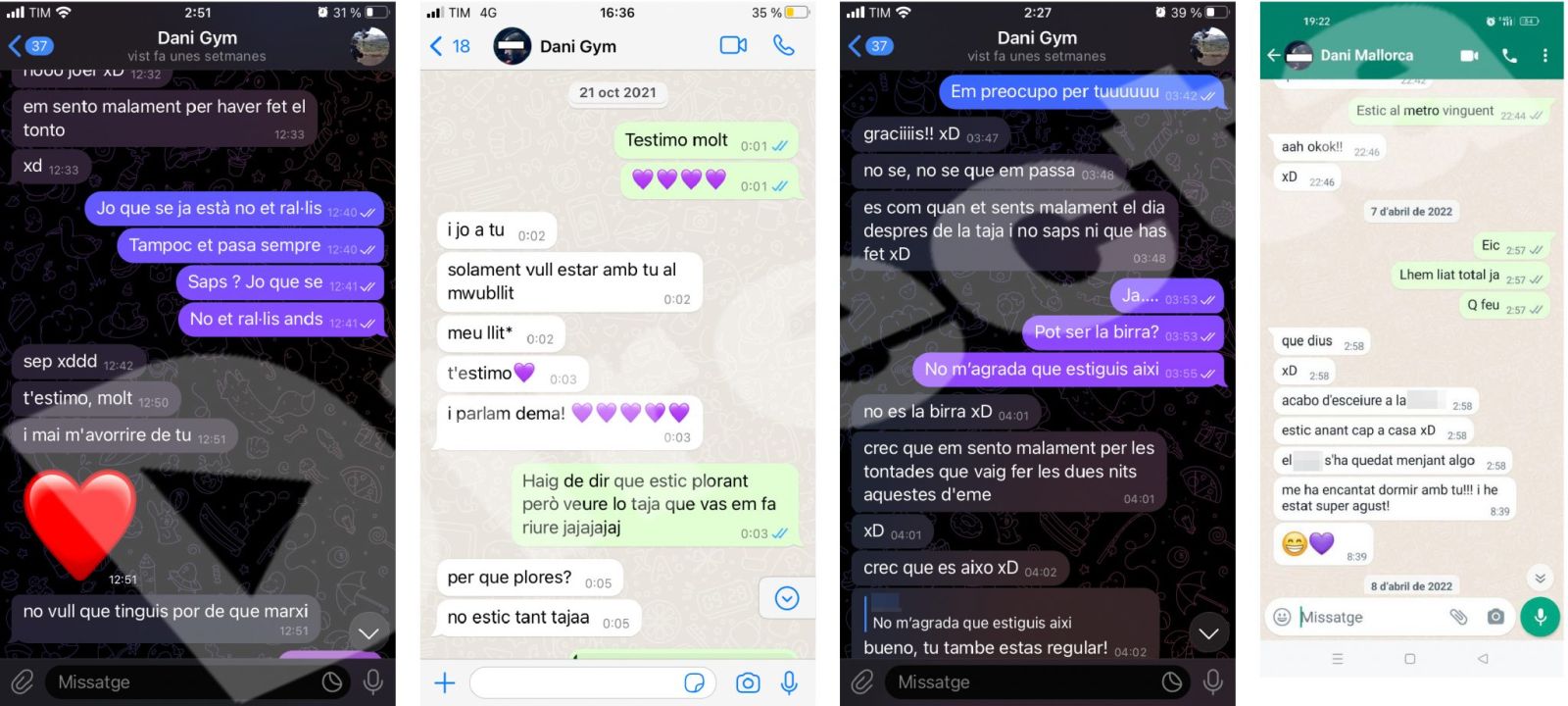
- Daniel Hernández Pons, an infiltrated police officer, had sex with women who are part of several political projects in Barcelona. As a result, he gave credibility to the character who was building and accessing some spaces, according to Directo. The Catalan publication reflects the experience and meaning of several women.

She met most of the women in the projects of the Barcelona neighborhood of Sant Andreu de Palomar, and others through the OkCupid app, matching the people who showed their political tendency.
The Catalan publication collects the testimonies of eight women. They maintained a different relationship, both in intensity and duration, but have identified behaviors that are repeated: being kind, constantly acting in love games, avoiding conflicts, interest in close people, mimicking ability, intermittent relationships, having the phone frequently shut down and offering little data about the past and the profession, among others.
Gradually, the infiltrated agent began to participate in numerous popular movements, with the objective of developing a guide against patriarchal violence in the working group of the social center La Cinética, such as the Anti-Repressive Coordinator of Sant Andreu, actions in favor of the Zapatista movement or the CGT union. “There was no stop creating new bonds of relationship,” said one of the interviewees by Direct. Looking back, the women who had a relationship with the police have understood many things: just showing photos of the past, few references to the family, that the only decorative elements of the housing are political stickers “ordered in a special way”… Iris tells journalists that a person has friends in Mallorca, in the country of origin of the police, and that no one knew this boy named Dani.
Not highlighted, but everywhere
The quota did not participate fully in political actions, it did not show a special interest, but it was everywhere, as women say. On the contrary, she was still attentive to personal information about the neighborhood's entrepreneurs. In the night environment he frequently used alcohol and other drugs, pills or MDMA (one of them says he never snowed). “I don’t know where I got them, but from time to time I invited everyone,” another girl explained, “I have the feeling that she never lost control on the excuse that she had to work the next day she was leaving home and that the neck was drunk.”

When the rapist is Spanish police
Knowledge of the truth hits the women interviewed by Direct and some of them decide to denounce it publicly. “When I saw the photo in the police suit, I felt a great anger, I couldn’t say half a word,” Bea explains. He has spent days without entering his room, the sections that he has spent with the police in his head. “He hasn’t won,” he says.
Txell added that mutual protection helps a lot: “Publicly denouncing is a way to fight institutional violence.” “The enemy has slept in his bed. I have not committed a crime, yet they have violated my intimacy and my physical and moral integrity.”
“If we are thrilled to want to change this miserable system, what kind of society do we die?” asks Iris.
Ruth says that when the sense of guilt appears, it has been said: “They are trained people.” And Juana adds: “When she discovered that the person you knew was a lie, the grief process begins, but after vulnerability, sadness and guilt comes anger. See how easy it has entered our spaces, our homes, our beds… There are no objections when you know that a national police force has raped you.”
Iris denounces that the treatment of women as an “object” is part of a “heteropatriarchal machinery”. And Txell adds: “I would like to know where the decisions were made and what the political objective is. In addition, the State has planned its strategy using the privileges of a cis man".
Some women say they are thinking of taking legal action to justify responsibilities and prevent them from happening again.